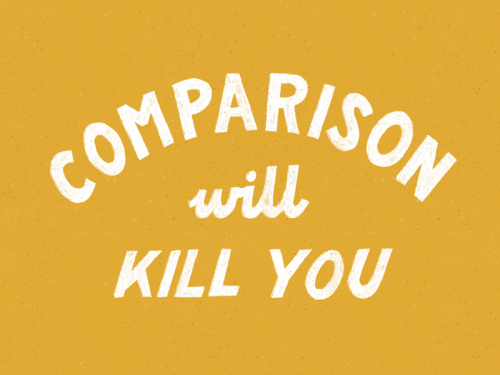Thecaffiend - Thecaffiend

More Posts from Thecaffiend and Others

c a s u a l
Controversial Truths About Ancient Egypt Masterpost
The pyramids were built by contemporary workers who received wages and were fed and taken care of during construction
The Dendera “lightbulb” is a representation of the creation myth and has nothing to do with electricity
We didn’t find “““copper wiring””” in the great pyramid either
Hatshepsut wasn’t transgender
The gods didn’t actually have animal heads
Hieroglyphs aren’t mysteriously magical; they’re just a language (seriously we have shopping lists and work rosters and even ancient erotica)
The ancient Egyptian ethnicity wasn’t homogeneous
Noses (and ears, and arms) broke off statues and reliefs for a variety of reasons, none of which are “there is a widespread archaeological conspiracy to hide the Egyptian ethnicity”

i was so fucking sad when i was 14 and now when i fold my laundry or see a pool of moonlight on the floor of my bedroom i know that miracles exist. i see love in everything. love sees everything in me too

why are french people rude?
Ah well, the safest explanation when an entire country’s people are stereotyped as rude is that they have their own culture with different criteria for politeness than the ones you are used to. It’s probably easier for Americans to forget this than for the rest of the world, because they consume less foreign media than the rest of us (from literature in translation to foreign films) and are less exposed to aspects of foreign cultures that could inform them about different norms of politeness (online interactions happen in their own language and follow their own (anglo) social codes.) With this insular worldview it’s easy to take it for granted that American good manners are universal. They are not!
A very common gripe against American tourists in Paris is that they talk so loudly in public spaces, which is definitely rude here but I assume that in the US, people just have a different threshold for what constitutes ‘loud’ (I wonder if it is due to being used to having more space than Europeans). I also remember a discussion I had with one of my translation professors about the American concept of ‘active listening’ and how negatively it is perceived in France. It may be that in the US it is polite to make ‘listening noises’ at regular intervals while someone is speaking to you, ‘uh huh’, ‘right’, ‘yeah’, ‘really?’, and that you would perceive someone who just stands there silently as disinterested or thinking about something else. In France it is more polite to shut up and listen (with the occasional nod or ‘mmh’) and it’s rather seen as annoying and rude to make a bunch of useless noise while someone is speaking.
There are of course countless examples like that. The infamous rude waiters in Parisian cafés probably seem a lot more rude and cold to people who have a different food culture… People from other cultures might consider a waiter terrible at his job if he doesn’t frequently check on them to make sure they don’t wait for anything, but the idea that a meal is a pleasant experience rather than just a way to feed yourself (esp when eating out) means we like having time to chat and just enjoy our table for a while, so we don’t mind as much waiting to order or for the next course. French people would typically hate if an overzealous waiter took the initiative to bring the note once we’re done with our meal so we don’t have to wait for it, as it would be interpreted as “you’re done, now get out of my restaurant.”
The level of formality required to be seen as polite is quite high in France, which might contribute to French people being seen as rude by people with a more casual culture. To continue with waiters, even in casual cafés they will address clients with the formal you and conversely, and won’t pretend to be your friend (the fact that we don’t have the American tip culture also means they don’t feel the need to ingratiate themselves to you.) I remember being alarmed when a waitress in New York introduced herself and asked how I was doing. “She’s giving me her first name? What… am I supposed to with it? Use it?” It gave me some insight on why Americans might consider French waiters rude or sullen! It might also be more accepted outside of France to customise your dish—my brother worked as a waiter and often had to say “That won’t be possible” about alterations to a dish that he knew wouldn’t fly with the chef, to foreign tourists who were stunned and angry to hear that, and probably brought home a negative opinion of French waiters. In France where the sentiment in most restaurants is more “respect the chef’s skill” than “the customer is king”, people are more likely to be apologetic if they ask for alterations (beyond basic stuff) as you can quickly be seen as rude, even by the people you are eating with.
And I remember reading on a website for learning English that the polite answer to “How are you?” is “I’m fine, thank you!” because it’s rude to burden someone you aren’t close to with your problems. In my corner of the French countryside the polite thing to do is to complain about some minor trouble, because saying everything is going great is perceived negatively, as boasting, and also as a standoffish reply that kind of shuts down the conversation, while grumbling about some problem everyone can relate to will keep it going. (French people love grumbling as a positive bonding activity!)
Basically, before you settle on the conclusion that people from a different place are collectively rude, consider that if you travel there and scrupulously follow your own culture’s social code of good manners, you might be completely unaware that you are being perceived as obnoxious, rude or unfriendly yourself simply because your behaviour clashes with what is expected by locals.
They did that thing on TikTok again, except this one guy did the arrangement
(x)
“For all the attention the Berlin conservatory study has received, this part of the top students’ experiences—their sleep patterns, their attention to leisure, their cultivation of deliberate rest as a necessary complement of demanding, deliberate practice—goes unmentioned. In Outliers, Malcolm Gladwell focuses on the number of hours exceptional performers practice and says nothing about the fact that those students also slept an hour more, on average, than their less-accomplished peers, or that they took naps and long breaks. This is not to say that Gladwell misread Ericsson’s study; he just glossed over that part. And he has lots of company. Everybody speed-reads through the discussion of sleep and leisure and argues about the 10,000 hours. This illustrates a blind spot that scientists, scholars, and almost all of us share: a tendency to focus on focused work, to assume that the road to greater creativity is paved by life hacks, propped up by eccentric habits, or smoothed by Adderall or LSD. Those who research world-class performance focus only on what students do in the gym or track or practice room. Everybody focuses on the most obvious, measurable forms of work and tries to make those more effective and more productive. They don’t ask whether there are other ways to improve performance, and improve your life. This is how we’ve come to believe that world-class performance comes after 10,000 hours of practice. But that’s wrong. It comes after 10,000 hours of deliberate practice, 12,500 hours of deliberate rest, and 30,000 hours of sleep.”
— Alex Soojung-Kim Pang, Darwin Was a Slacker and You Should Be Too

The science world is freaking out over this 25-year-old's answer to antibiotic resistance
-
 stormmaya liked this · 1 year ago
stormmaya liked this · 1 year ago -
 kusabubu55 liked this · 3 years ago
kusabubu55 liked this · 3 years ago -
 wwebeckyfan liked this · 3 years ago
wwebeckyfan liked this · 3 years ago -
 oi-with-the-poodles reblogged this · 4 years ago
oi-with-the-poodles reblogged this · 4 years ago -
 europeanposer liked this · 4 years ago
europeanposer liked this · 4 years ago -
 dos2de2dos reblogged this · 4 years ago
dos2de2dos reblogged this · 4 years ago -
 woopascoop liked this · 5 years ago
woopascoop liked this · 5 years ago -
 bellaaround liked this · 5 years ago
bellaaround liked this · 5 years ago -
 meetmeinmybed reblogged this · 5 years ago
meetmeinmybed reblogged this · 5 years ago -
 idontgiveadamngirl reblogged this · 5 years ago
idontgiveadamngirl reblogged this · 5 years ago -
 urbancelt liked this · 5 years ago
urbancelt liked this · 5 years ago -
 tokinbonghits liked this · 5 years ago
tokinbonghits liked this · 5 years ago -
 oi-with-the-poodles reblogged this · 5 years ago
oi-with-the-poodles reblogged this · 5 years ago -
 batidianag liked this · 5 years ago
batidianag liked this · 5 years ago -
 blondeonblondie reblogged this · 5 years ago
blondeonblondie reblogged this · 5 years ago -
 persevere-and-succeed liked this · 5 years ago
persevere-and-succeed liked this · 5 years ago -
 jessica14097 reblogged this · 5 years ago
jessica14097 reblogged this · 5 years ago -
 jessica14097 liked this · 5 years ago
jessica14097 liked this · 5 years ago -
 thenameiscj reblogged this · 5 years ago
thenameiscj reblogged this · 5 years ago -
 fuckthisshittyshitx reblogged this · 5 years ago
fuckthisshittyshitx reblogged this · 5 years ago -
 fuckthisshittyshitx liked this · 5 years ago
fuckthisshittyshitx liked this · 5 years ago -
 thehonestcollection liked this · 5 years ago
thehonestcollection liked this · 5 years ago -
 deathlyweird liked this · 6 years ago
deathlyweird liked this · 6 years ago -
 abstract-creativityonly reblogged this · 6 years ago
abstract-creativityonly reblogged this · 6 years ago -
 strong-soul16 liked this · 6 years ago
strong-soul16 liked this · 6 years ago -
 yesswimmingbirdcollector liked this · 6 years ago
yesswimmingbirdcollector liked this · 6 years ago -
 jbyh3817 reblogged this · 6 years ago
jbyh3817 reblogged this · 6 years ago -
 genuine-imitations reblogged this · 6 years ago
genuine-imitations reblogged this · 6 years ago -
 glimpseofsunlight reblogged this · 6 years ago
glimpseofsunlight reblogged this · 6 years ago -
 r-isabel-guadarrama-m liked this · 6 years ago
r-isabel-guadarrama-m liked this · 6 years ago -
 byapplecalifornia liked this · 6 years ago
byapplecalifornia liked this · 6 years ago -
 blueeyedteenroula liked this · 6 years ago
blueeyedteenroula liked this · 6 years ago -
 katiebean87 liked this · 6 years ago
katiebean87 liked this · 6 years ago -
 jessie102608 liked this · 6 years ago
jessie102608 liked this · 6 years ago